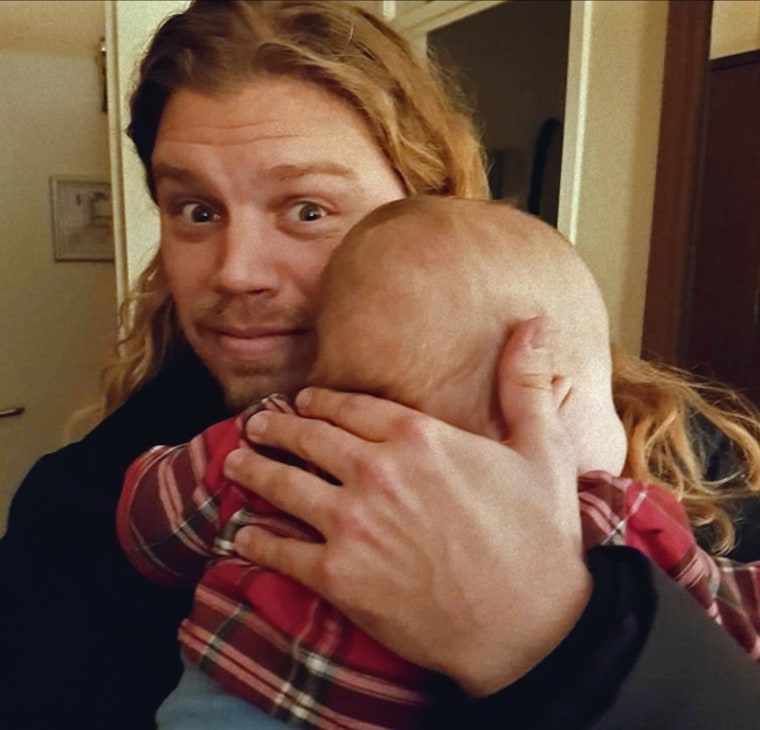safe
Jonathan Meijer’s Side of the Story
Defending His Actions
Jonathan Meijer, the prolific sperm donor at the center of Netflix’s latest hit docuseries, “The Man With 1000 Kids,” has vehemently denied accusations of deception and asserted that he is preparing a slander suit against the production team. In a YouTube video released last week, Meijer addressed the documentary’s portrayal, claiming that he had initially provided families with the exact number of children he had fathered when he first began donating. However, he later opted to stop disclosing the real estimate.
“Technically I did not lie,” Meijer told NBC News in an email Monday. “I followed the guidelines of every large commercial international sperm bank that does not inform the recipients about the amount of offspring one donor will produce,” he wrote, adding, “I was doing a much better thing, I gave the parents an estimated number, this was better and more info than they would ever get at any clinic.”

The Reality of Sperm Donation
Meijer’s assertions raise important questions about the transparency and ethical considerations surrounding sperm donation practices. While he maintains that he adhered to guidelines set by international sperm banks, the documentary’s investigation suggests that these guidelines may not adequately address the potential for harm to families and future generations.
Eve Wiley, a fertility fraud activist who Meijer claims has “nothing to do with [him],” estimated in the show that Meijer could have fathered thousands of children, depending on the number of sperm straws successfully used for conception. This raises concerns about the potential for unintended consequences, including the risk of inbreeding among half-siblings who may be unaware of their shared genetic link.

A Man of Good Intentions?
The documentary presents a complex portrait of Meijer, highlighting both his motivations for becoming a sperm donor and the potential for his actions to have unintended negative consequences. While Meijer claims to have acted altruistically, seeking to help others and make a positive contribution to the world, the documentary raises questions about the extent to which his actions were truly selfless.
Meijer emphasizes his desire to be “useful” to others, stating, “Well, it has to be a man that’s willing to help others, and a man that sees that he can, with his life, do something more than just live for himself, work for himself, and he wants to be useful to others. That’s the kind of man that does it, and I’m not an exception.” However, his continued sperm donation activities despite being banned in the Netherlands and allegations of mixing his sperm with another donor’s suggest a more complex set of motivations at play.
The Documentary’s Allegations and Findings
Uncovering the Truth
“The Man With 1000 Kids” delves into the intricate world of sperm donation, exposing the potential for hidden truths and unintended consequences. The documentary’s investigation into Meijer’s activities reveals a staggering number of children fathered through his donations, raising concerns about the ethical implications of his actions.
Through interviews with couples and individuals who discovered their sperm donor was Meijer, the documentary paints a picture of families grappling with the complexities of their genetic heritage and the potential for inbreeding among their half-siblings.
The Risks of Inbreeding
The documentary highlights the serious risks associated with inbreeding, particularly the increased likelihood of genetic disorders and health problems in offspring. Inbreeding occurs when closely related individuals reproduce, leading to a higher chance of passing on recessive genes that may cause health issues.
The potential for inbreeding among Meijer’s half-siblings raises significant ethical concerns, as it could result in a higher incidence of genetic disorders and health complications within this extended family network. This underscores the importance of transparency and ethical considerations in sperm donation practices.
A Pattern of Behavior?
“The Man With 1000 Kids” also examines Meijer’s actions in the Netherlands and his continued sperm donation activities abroad, despite facing bans and legal repercussions. This raises questions about his motivations and whether he deliberately sought to circumvent regulations and potentially exploit vulnerable individuals seeking fertility treatments.
The documentary suggests that Meijer’s actions may reflect a pattern of disregard for ethical boundaries and established guidelines within the sperm donation industry. This raises concerns about the need for stricter regulations and greater accountability within the industry to protect the rights and well-being of both donors and recipients.
The Implications and Aftermath
Sperm Donation Regulations
The case of Jonathan Meijer highlights the urgent need for robust regulations and ethical guidelines surrounding sperm donation practices. While nonbinding medical guidelines in the Netherlands impose a cap of 25 children per sperm donor, Meijer’s case demonstrates the potential for donors to circumvent these limits and operate outside established ethical frameworks.
This calls for a reevaluation of existing regulations and the implementation of stricter measures to prevent exploitation, ensure donor accountability, and protect the rights and well-being of recipients and their future offspring. Transparency and informed consent are paramount in this process.
The Human Cost
“The Man With 1000 Kids” poignantly portrays the emotional toll that Meijer’s actions have taken on the families involved. The documentary features interviews with mothers who discovered their children had hundreds of half-siblings, expressing feelings of betrayal, confusion, and anxiety about the potential impact on their children’s lives.
The emotional consequences of this situation are profound, highlighting the need for greater empathy and understanding for the individuals affected by sperm donation controversies. It also underscores the importance of providing comprehensive support services for families grappling with the complexities of genetic relationships and unintended consequences.
The Future of Sperm Donation
The case of Jonathan Meijer has far-reaching implications for the future of sperm donation. It raises fundamental questions about the ethical boundaries of reproductive technologies and the need for greater transparency, accountability, and regulation within the industry.
This case serves as a wake-up call, demanding a reassessment of current practices and a commitment to safeguarding the rights and well-being of all parties involved in sperm donation. Open dialogue, ethical guidelines, and robust legal frameworks are essential to ensuring responsible and ethical practices in this increasingly complex field.
Personal Stories and Reactions
The Mothers’ Perspective
“The Man With 1000 Kids” features firsthand accounts from mothers who discovered that their children had hundreds of half-siblings through Jonathan Meijer’s sperm donations. These mothers express a range of emotions, including shock, disbelief, anger, and deep sadness over the betrayal they feel by Meijer and the sperm banks involved.
Kate, an Australian mother featured in the documentary, shares her struggle with understanding the implications of Meijer’s actions for her child. “How are they psychologically going to be able to deal with this information?” she asks, highlighting the profound emotional and psychological impact on the children involved.
A Community in Crisis
The documentary sheds light on the impact of Meijer’s actions on the broader community of sperm donors and recipients. Many express feelings of betrayal, confusion, and anger, questioning the ethical boundaries of the sperm donation industry and demanding greater transparency and accountability.
This case has created a sense of crisis within the community, forcing individuals to confront the potential for exploitation and the need for stronger safeguards to protect the rights and well-being of all parties involved in this complex process.
A Call for Change
“The Man With 1000 Kids” serves as a powerful call for change within the sperm donation industry. The documentary highlights the need for stricter regulations, greater transparency, and a renewed focus on ethical considerations to ensure that the rights and well-being of both donors and recipients are protected.
The case of Jonathan Meijer underscores the importance of ongoing dialogue, public awareness, and a commitment to responsible practices in this evolving field. It is essential to prioritize the health, well-being, and informed consent of all individuals involved in this complex and sensitive process.
Conclusion
safe

